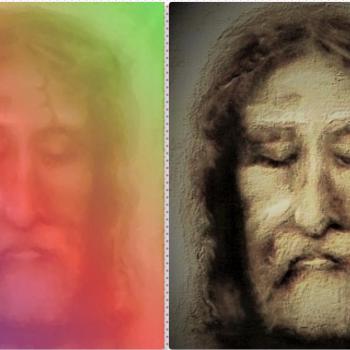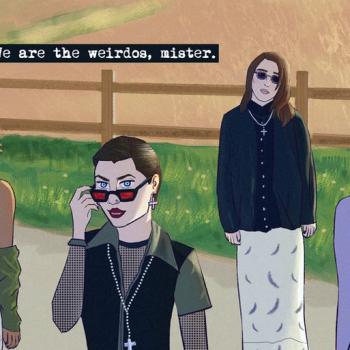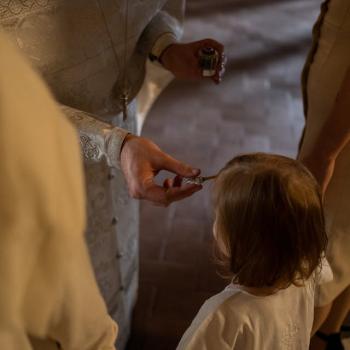It's a world ruled by the visual: no sound, touch, or taste interrupts the purity of image. It's a deeply social world, but conversation is rare. Its emotional currency is sentimental, but it counts and quantifies every action and behavior. It's hierarchical and rank-driven, but it's also radically egalitarian: any coveted object is instantaneously available to any member of the community, and money means nothing. Anybody can acquire the icons of wealth and status and display them proudly for the world to see, all with the help of a little button on the browser that reads "Pin It."
That's right, I'm talking about Pinterest.
Pinterest is a social bookmarking site not so different from other varieties of its online species, but it's laid out as an especially appealing visual collage unrolling in an infinite scroll of colorful images. It can be used solely as a place to archive and organize your own personal bookmarks gathered from around the internet, so you never have to ask yourself "Where did I see that recipe for quinoa brownies?" But you can also link up with friends so that their pinned bookmarks show up on your page, as well—or you can plunge into the visual welter of all the images pinned by all Pinterest users. In the latter capacity, the site works as a search engine: you can enter a search term and pull up all ten thousand DIY tutorials for embellished lamp shades, or whatever your whim dictates.
Pinterest does for me what shopping does for some: it allows me to accessorize a fantasy life, a fantasy identity, and to do so at no cost except my time. In theory any webpage with a big enough image can be pinned, and I do maintain "books" and "articles" boards. But the emphasis on image over text favors visually appealing content. Pinterest thus offers a glimpse into the collective id of its overwhelmingly female users. And the objects of female desire will surprise nobody: clothing, cakes, crafts, chocolate, baby animals. Human babies, too, lots of them. Sarcastic quips. Wedding dresses. Old books carved up into every conceivable decorative object. Hair and makeup. Images of scantily-clad female bodies outnumber scantily-clad male bodies ten to one, easily. Pinterest demolishes the old canard that men are visually stimulated while women are not. It turns out that women just need the right kind of visual stimulation.
(It should go without saying that not all women share these enthusiasms, and those who don't, likely don't get Pinterest and don't use it. That's fine: their interests are as valid as mine, and probably more worthy. Pinterest certainly doesn't capture the entirety of female desire. But its popularity suggests that it's capturing something significant about the experience of being a woman; that certainly has been my experience.)
Pinterest is not all id, however. There is a healthy dose of superego. Fifty ways to use cauliflower. Thirty day detox plans. And lots and lots of Bible verses. A search for "verse" brings up hundreds of results, almost all of them images of Bible verses graphically formatted in pleasing colors and fonts. Two biblical categories are especially popular. The first are messages of self-affirmation and encouragement: God loves you, he knows you and protects you. Jeremiah 29:11 is ubiquitous on Pinterest: "For I know the plans I have for you, declares the LORD, plans to prosper you and not to harm you, plans to give you hope and a future." The second category follows from the first: exhortations to love, kindness and charity. 1 Corinthians 13 seems to be the leader in this division, showing up on walls, cakes, and even shoes. (In addition, there's a large sub-population of LDS Pinterest users, and common among other LDS-oriented resources are quotes from that most pinnable of leaders, Elder Uchtdorf.)





